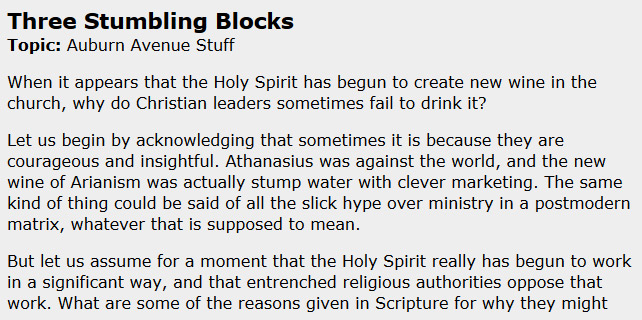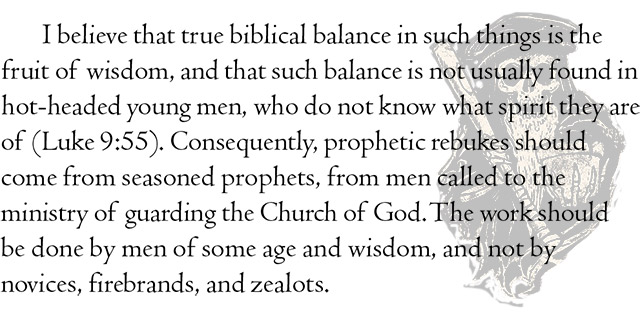And this is what you must do. Run an inventory on your vocabulary. Make a list of words that you use that fall into this general category. Having made the list, see what happens when you ask the following questions about them.
Is your use of such words a matter of self-conscious Christian discipleship? If not, then stop saying them. Who taught you this word? Who are you imitating in using it yourself? How confident are you that there are no strings attached to the word? How confident are you that you learned nothing else along with the word? Is your use of these words paired up with an ungodly attitude? Is it connected to Ezekiel’s prophetic use or to some hard-R sex comedy? Jesus says that out of the abundance of the heart, the mouth speaks (Matt. 12:34). Is your speech a fresh water spring or a sewage pipe? When you speak, are you respectful of the presence of women? Does that kind of thing matter to you at all? Are you aware of the difference between not speaking like a gentleman all alone, which is bad enough, and when you are with others not speaking like a gentleman in such a way as to insult a lady? When you speak, is it for the edification of the hearer, or is it to get a laugh for your own glory? Do you speak for them or for you? And are you like a poor stand-up comedian who tells dirty jokes because nervous laughter is better than no laughter? Do you use the existence of verbal Platonists as an excuse to be a libertine? As we finish, consider the explicit teaching of the apostle Paul on the subject. “Let no corrupt communication proceed out of your mouth, but that which is good to the use of edifying, that it may minister grace unto the hearers” (Eph. 4:29).
When Paul says this, he is assuming that we will do the hard work of identifying what corrupt communication is. He knew that every language is different, and we could say every last word in our lexicon of filthy talk to the apostle and he, not knowing English, wouldn’t have anything to say about any of them. But he would nonetheless expect English-speaking Christians to think like grown-ups. He would expect them to teach their children not to say certain things, and the fact that these prohibited words cannot be found itemized in Scripture should not trouble us at all. It is not legalism to understand the principle and apply it in new territory. And so there are your marching orders on this topic — no corrupt communication.
Douglas Wilson










